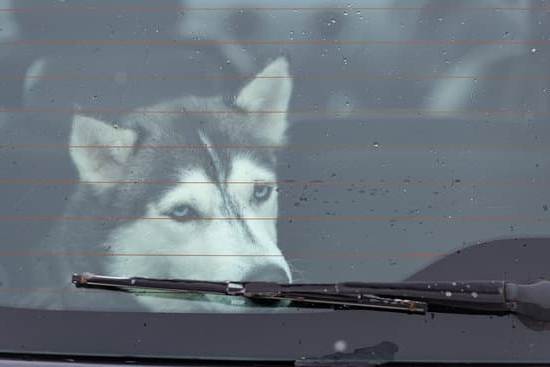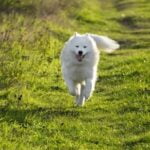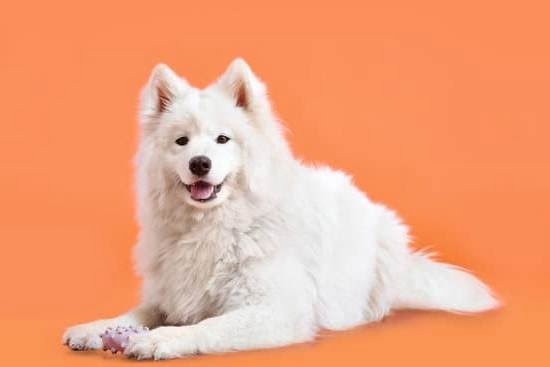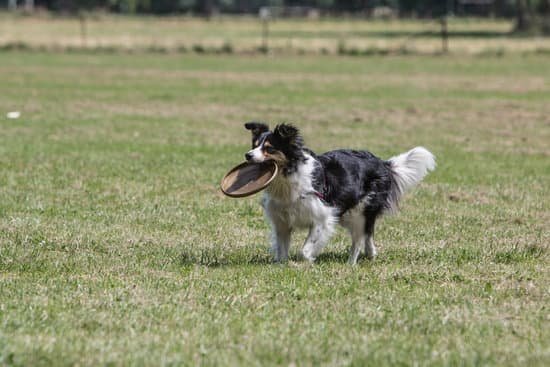Have you ever found yourself asking, “Why my potty trained dog is having accidents?” It can be quite frustrating when your furry friend starts having accidents indoors after being successfully potty trained. Understanding the basics of potty training is crucial in addressing this issue and ensuring that your dog maintains good bathroom habits.
Potty training is a fundamental aspect of dog ownership that requires consistency, patience, and positive reinforcement. Establishing a routine and setting clear expectations for your dog are key components of successful potty training. However, even the most well-trained dogs may experience setbacks or accidents for various reasons, which is why it’s essential to delve deeper into the possible causes behind this behavior.
In this article, we will explore the importance of consistency in dog training, as well as potential medical reasons that could lead to accidents in potty trained dogs. Additionally, we will discuss how changes in routine or environment, behavioral issues, and stress factors can contribute to your dog having accidents. By understanding these factors, you can better address the root cause of the problem and prevent future accidents from occurring.
Importance of Consistency in Dog Training
Consistency is key when it comes to successfully potty training your dog. Whether you have a new puppy or an older dog, maintaining a consistent routine will help them understand where and when they are supposed to go potty. Inconsistencies in training can lead to confusion for your furry friend, which may result in accidents inside the house. This is often a common reason why my potty trained dog is having accidents.
Establishing a Routine
One of the most important aspects of consistency in dog training is establishing a routine for potty breaks. Dogs thrive on predictability, so setting specific times throughout the day for bathroom breaks can help prevent accidents. Make sure to take your dog outside first thing in the morning, after meals, before bedtime, and at regular intervals throughout the day. By sticking to a schedule, you are reinforcing good habits and reducing the chances of accidents occurring indoors.
Using Positive Reinforcement
Consistency also plays a role in how you reinforce good behavior during potty training. Positive reinforcement, such as praise, treats, or playtime, should be consistently given immediately after your dog goes potty outside. This helps them associate going to the bathroom in the right spot with positive outcomes.
Avoid punishing your dog for accidents indoors as this can create fear and anxiety, leading to more accidents. Stay patient and remain consistent with your praise and rewards to encourage proper potty habits.
Monitoring Progress
Another important aspect of consistency in dog training is monitoring your pet’s progress closely. Keep track of when and where accidents occur to identify any patterns or underlying issues that may be causing setbacks in their potty training. By staying consistent with your observations and making necessary adjustments to your routine or training techniques, you can help address any issues that may arise and set your dog up for success in their potty training journey.
Possible Medical Reasons for Accidents
When your previously potty trained dog starts having accidents indoors, it can be frustrating and concerning. One possible reason for this sudden change in behavior could be medical issues. It is essential to rule out any underlying health problems that may be causing your furry friend to have accidents. Here are some medical reasons why your potty trained dog might be having accidents:
- Urinary Tract Infection (UTI): UTIs are common among dogs and can lead to frequent urination, accidents inside the house, and discomfort while urinating.
- Gastrointestinal Issues: Digestive problems such as diarrhea or constipation can cause a dog to have accidents inside as they may not be able to hold their bowel movements.
- Bladder Stones: Bladder stones can cause pain and difficulty in urination, leading to accidents as your dog struggles to control their bladder.
If you suspect that your potty trained dog’s accidents are due to a medical issue, it is crucial to consult with your veterinarian. They will conduct a thorough examination, including diagnostic tests if necessary, to determine the root cause of the problem. Once any medical issues are addressed and treated accordingly, you can focus on re-establishing proper potty habits with your canine companion.
Remember, identifying and addressing medical reasons for accidents is essential in ensuring the health and well-being of your dog. By seeking timely veterinary care and treatment, you can potentially resolve the issue and help your beloved pet get back on track with their potty training routine.
Changes in Routine or Environment
Traveling or Boarding
If you have recently traveled with your dog or boarded them at a kennel, this change in environment could have caused them to regress in their potty training. Dogs may have trouble adjusting to a new space and may feel anxious or stressed, leading to accidents. It’s important to give your dog time to readjust when returning home and reinforce potty training.
Introducing New Pets or Family Members
Bringing a new pet into the household or having visitors over can also disrupt your dog’s routine and lead to accidents. Your dog may feel territorial, jealous, or anxious about the new addition, causing them to act out by having accidents indoors. It’s crucial to monitor their behavior closely during these transitions and provide additional potty breaks as needed.
Changes in Schedule
Any alterations in your daily schedule can impact your dog’s bathroom habits. If you are spending more time away from home or working different hours, your dog may not be able to hold it as long as before. This can result in accidents, even if they were previously fully potty trained. It’s essential to adjust their routine gradually and ensure they have access to regular potty breaks throughout the day.
Behavioral Issues and Stress Factors
Dogs, like humans, can experience stress and behavioral issues that may contribute to accidents in potty-trained dogs. There are various reasons why a previously well-trained dog may start having accidents indoors. One common cause is separation anxiety, where the dog becomes anxious or stressed when left alone for extended periods. This anxiety can manifest in behaviors such as urinating or defecating inside the house, even if the dog knows it is supposed to go outside.
Additionally, changes in the household dynamic or routine can also lead to stress for your dog, resulting in accidents. This could be due to a new pet in the home, a change in work schedule, moving to a new house, or any other disruption to their usual environment. Dogs thrive on routine and stability, so any significant changes can trigger anxiety and undesirable behavior.
It is important to observe your dog’s behavior closely to identify any signs of distress or anxiety that may be causing them to have accidents. Providing them with comfort, reassurance, and positive reinforcement during these times can help alleviate stress factors and improve their potty training consistency. If necessary, consulting with a professional dog trainer or behaviorist can also help address any underlying behavioral issues contributing to your potty trained dog having accidents.
| Stress Factors | Behavioral Issues |
|---|---|
| Separation anxiety | New pet in the household |
| Changes in routine or environment | Moving to a new house |
Revisiting Potty Training Techniques
When a previously potty trained dog starts having accidents, it can be frustrating and confusing for pet owners. It is essential to revisit the basic principles of potty training to address this issue effectively. One common reason why my potty trained dog is having accidents could be related to a regression in training.
Dogs, like humans, may forget their training if not consistently reinforced. By going back to the fundamentals of potty training, such as taking your dog out frequently, praising them for going in the right place, and establishing a routine, you can help refresh their memory and prevent accidents.
Another aspect to consider when revisiting potty training techniques is the possibility of territorial marking. Dogs, especially unneutered males, may mark their territory indoors by urinating in certain spots. This behavior is instinctual but can be managed through consistent reinforcement of appropriate elimination behaviors. By closely supervising your dog indoors and redirecting any marking behavior with positive reinforcement, you can discourage accidents related to territorial marking.
In addition to reinforcing basic potty training principles and addressing territorial marking behaviors, it is crucial to identify any changes in your dog’s environment or routines that may be contributing to accidents. Dogs are creatures of habit, and disruptions in their usual schedule or living arrangements can lead to stress and behavioral issues.
By maintaining a stable routine, providing mental stimulation through activities and exercise, and ensuring a safe and comfortable environment for your pet, you can help minimize the likelihood of accidents due to environmental factors.
| Possible Reasons for Accidents | Addressing Strategies |
|---|---|
| Regression in training | Revisit basic potty training techniques |
| Territorial marking | Monitor indoor behavior closely; redirect with positive reinforcement |
| Environmental changes or disruptions | Maintain stable routines; provide mental stimulation; ensure comfort |
Cleaning Up Accidents and Preventing Recurrence
Accidents happen, even with a potty trained dog. It can be frustrating and confusing to see your furry friend regressing in their potty habits. However, it’s important to stay patient and figure out the root cause of why your potty trained dog is having accidents. One key step in dealing with this issue is properly cleaning up accidents to prevent recurrence.
When cleaning up after your dog has an accident, it’s crucial to thoroughly clean the affected area to remove any lingering odor that may attract them back to the same spot. Here are some steps you can take to effectively clean up accidents:
- Blot up as much of the mess as possible using paper towels or a clean cloth.
- Use a pet-friendly enzymatic cleaner to break down and eliminate any residual odor.
- Rinse the area with water and blot dry.
- Avoid using ammonia-based cleaners as they can mimic the scent of urine.
Preventing recurrence of accidents involves being proactive in your approach. Consistency in training and routines is key to ensuring your dog understands where they should go potty. Here are some tips for preventing future accidents:
- Stick to a regular feeding schedule as this will help regulate your dog’s bathroom habits.
- Take your dog out frequently, especially after meals, naps, and playtime.
- Supervise your dog closely indoors especially after any changes in routine or environment.
Remember, patience and understanding are essential when dealing with potty accidents in a previously trained dog. By implementing these cleaning tips and preventive measures, you can work towards addressing the issue and getting your furry companion back on track with their potty habits. If despite your efforts, the accidents continue, seeking professional help from a veterinarian or certified dog trainer may be necessary for further guidance and support.
Seeking Professional Help and Consultation
In conclusion, having a potty trained dog suddenly start having accidents can be a frustrating experience for pet owners. While the reasons behind this behavior can vary, it is essential to address the issue promptly to prevent any long-term problems.
Understanding the basics of potty training and the importance of consistency in training are key factors in resolving this issue. By identifying possible medical reasons for accidents, such as urinary tract infections or gastrointestinal issues, pet owners can rule out any underlying health concerns contributing to their dog’s accidents.
Changes in routine or environment can also play a significant role in causing accidents in potty trained dogs. Whether it’s a move to a new house, changes in the family dynamic, or disruptions in their regular schedule, these factors can lead to behavioral issues and stress for dogs. By recognizing these changes and making adjustments accordingly, pet owners can help alleviate some of the stress that may be causing their dog to have accidents.
When all else fails, revisiting potty training techniques and seeking professional help and consultation from a veterinarian or certified dog trainer may be necessary. These experts can provide insight into why a previously well-trained dog is suddenly experiencing accidents and offer guidance on how to address the issue effectively. With patience, understanding, and proper training techniques, most dogs can overcome their accidents and return to being reliably potty trained companions.
Frequently Asked Questions
Why Did My Potty Trained Dog Have an Accident?
There could be several reasons why a potty-trained dog has an accident. It might be due to a medical issue like a urinary tract infection or anxiety. Changes in the environment, routine, or diet can also lead to accidents.
What to Do When a Potty Trained Dog Regressing?
When a potty-trained dog starts regressing, it’s essential to rule out any medical problems first by consulting with a veterinarian. If health issues are ruled out, consider if there have been any changes at home that could be causing stress for your furry friend. Consistency, positive reinforcement, and patience are key in addressing regression.
Why Does My Dog Keep Peeing in the House After Being Potty Trained?
Dogs may continue peeing in the house after being potty trained due to various reasons such as marking territory, separation anxiety, insufficient opportunities for bathroom breaks, or even cognitive decline in older dogs. Reassessing the potty training routine and consistency is crucial in addressing this behavior.

Welcome to the blog! I am a professional dog trainer and have been working with dogs for many years. In this blog, I will be discussing various topics related to dog training, including tips, tricks, and advice. I hope you find this information helpful and informative. Thanks for reading!





